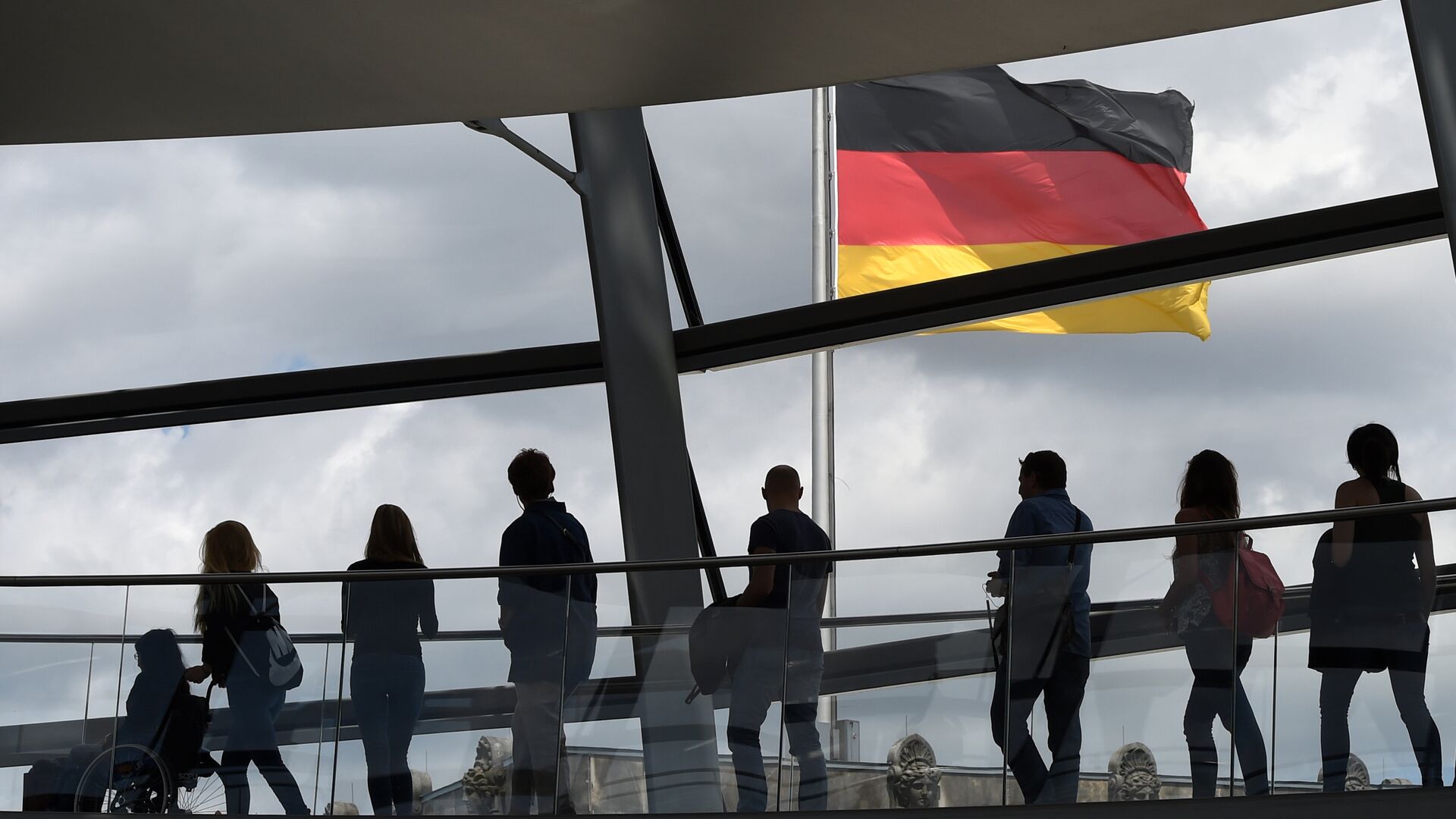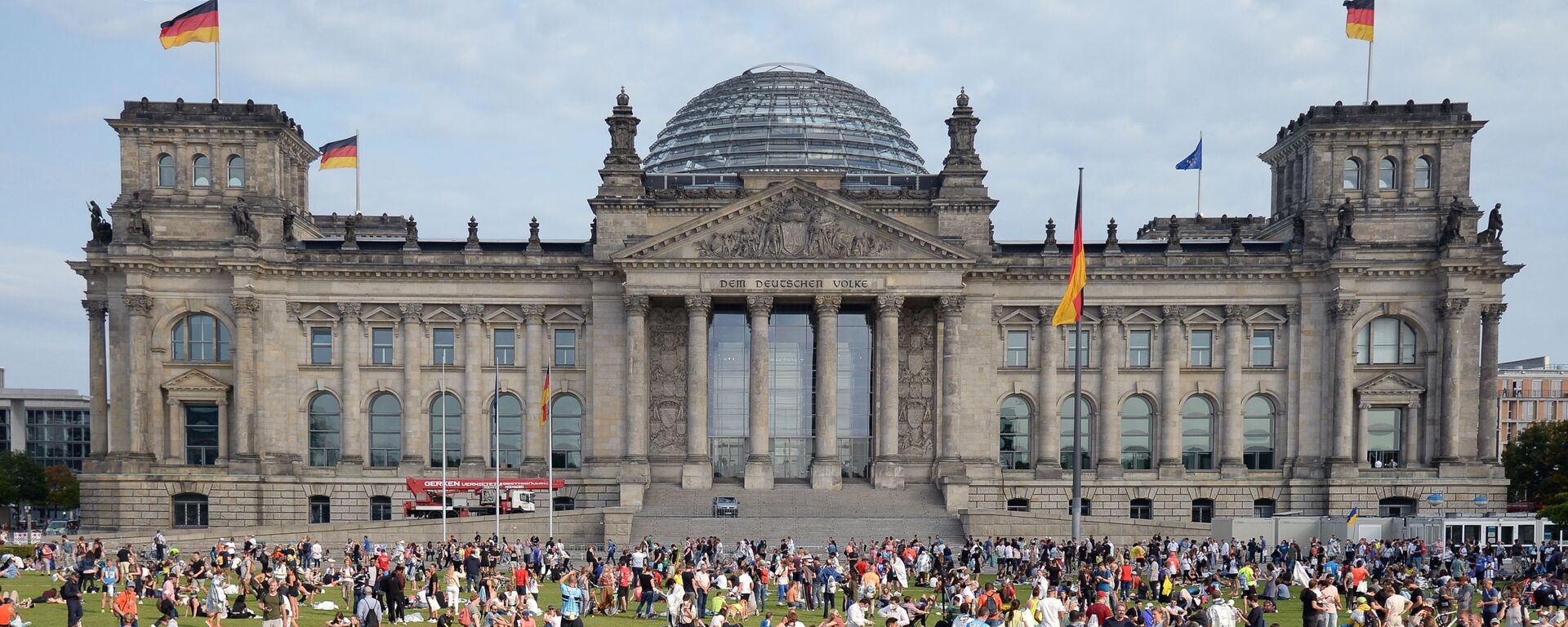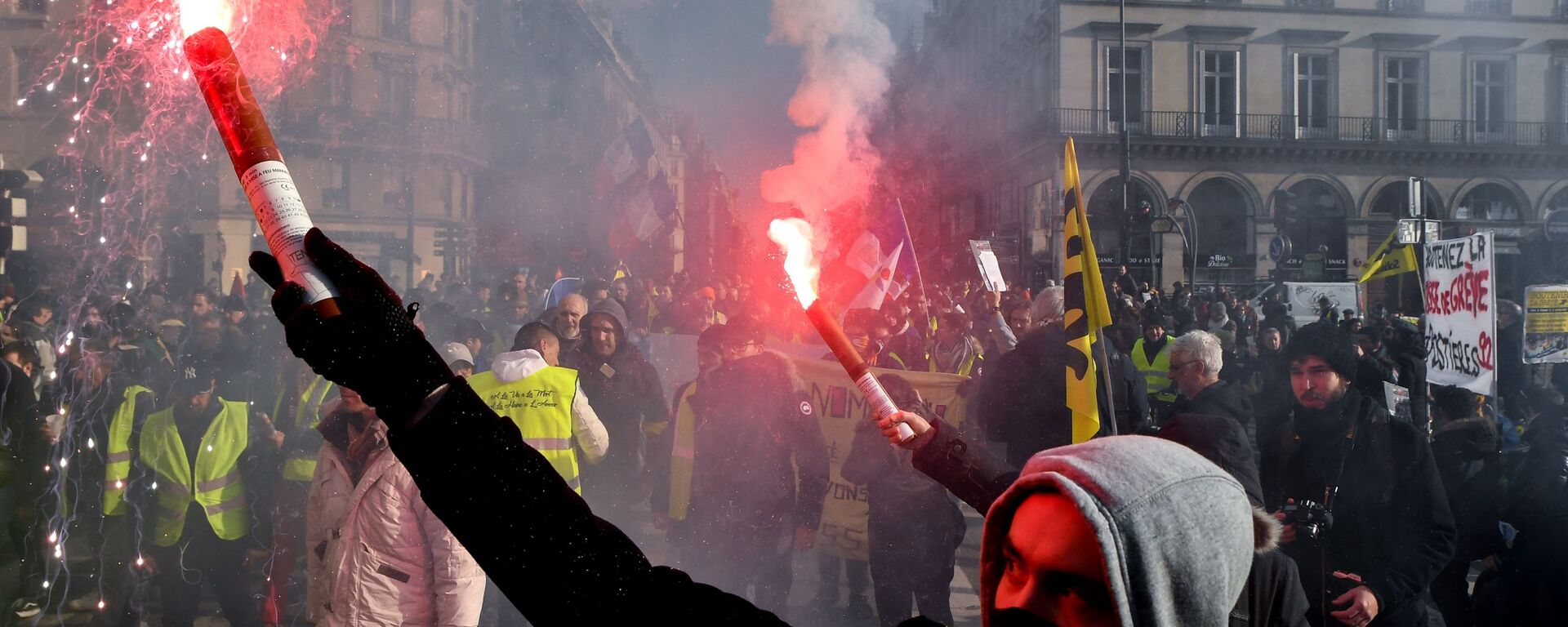AfD Politician: Strikes Gain Steam in Germany as Economy Spirals Into Crisis

© AFP 2023 / CHRISTOF STACHE
Subscribe
The country is experiencing rapidly rising inflation, skyrocketing food prices and collapsing living standards, Gunnar Beck, member of the European Parliament for the rightwing Alternative for Germany (AfD) party who is currently vice-president of the Identity & Democracy Group in the Parliament, told Sputnik.
The Ver.di trade union, the second largest German trade union, has organized several major strikes over the last few months over plummeting wages and collapsing living standards. On Monday, industrial action caused the cancellation of flight departures at Berlin, Hamburg, Hanover and Bremen airports, while on Tuesday employees of medical institutions kicked off a warning strike.
"They’re the first significant strikes in Germany for quite a while - there had been strikes in the airline industry before; this is continuing," said Gunnar Beck. "But what we are seeing now are public sector workers going on strike in the hundreds of thousands. The background is that Germany is experiencing rapidly rising inflation, in particular, energy prices and food prices have been rising very significantly. The German government is subsidizing energy prices to some extent, but they're not doing that in relation to food prices. Food price inflation in Germany is currently running at 23% and wage increases simply aren't keeping pace with it. On average, people are getting an additional 4 to 5%. So their living standard is collapsing."
Wage increases aren't keeping pace with inflation across Europe, leading to recent strikes in Italy and France. Still, it has been rather unusual for Germany to jump on the industrial action bandwagon, according to the MEP.
The crux of the matter is that Germany's economy has found itself in deep trouble. Previously, the nation's "economic miracle" rested on two major presuppositions: the supply of cheap, reliable and high quality energy from Russia and export success, especially in the rapidly expanding new markets of the world economy, most notably China.
"Now, the first of those preconditions, the secure and reliable supply of cheap Russian energy has gone because the North Stream pipeline has been destroyed and the German government has done what it could to cut off supplies from Russia," Beck said. The second is in danger, because rising energy prices aren’t only affecting consumers in Germany, they’re obviously also affecting German industry, where costs have been rising very significantly as a result of rising energy prices. So Germany is in trouble and the state of her economy is very precarious."
There is also the third factor, according to the AfD politician: Washington adopted the Inflation Reduction Act (IRA) which in fact is revolving around subsidizing the US "green" industries and production of electric vehicles (EV). The law has created an enormous competitive advantage for US manufacturers which are also enjoying cheaper and more reliable sources of energy, something that Germany has been recently stripped of.
"Some enterprises, for the most part German companies, are relocating part of their production," Beck said. "I think this process is only just starting because there are many other factors that are forcing German companies abroad."
"I think strikes are still industry-specific and limited to certain regions of the country. So it's not yet a nationwide phenomenon. For the time being, I think, the consequences are limited. But one has to monitor the situation, if they become more regular and more widespread, it could obviously have repercussions. I think especially in terms of the relations between various constituent parties of the Coalition, obviously the Greens are very keen to press ahead with their green agenda, which is at the heart of Germany's economic problems at present. The Social Democrats have traditionally been a bit more realistic. So one has to see how that will pan out," the MEP concluded.





